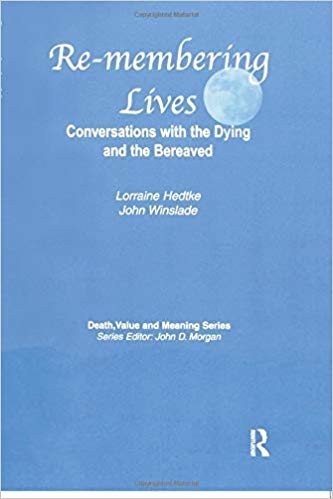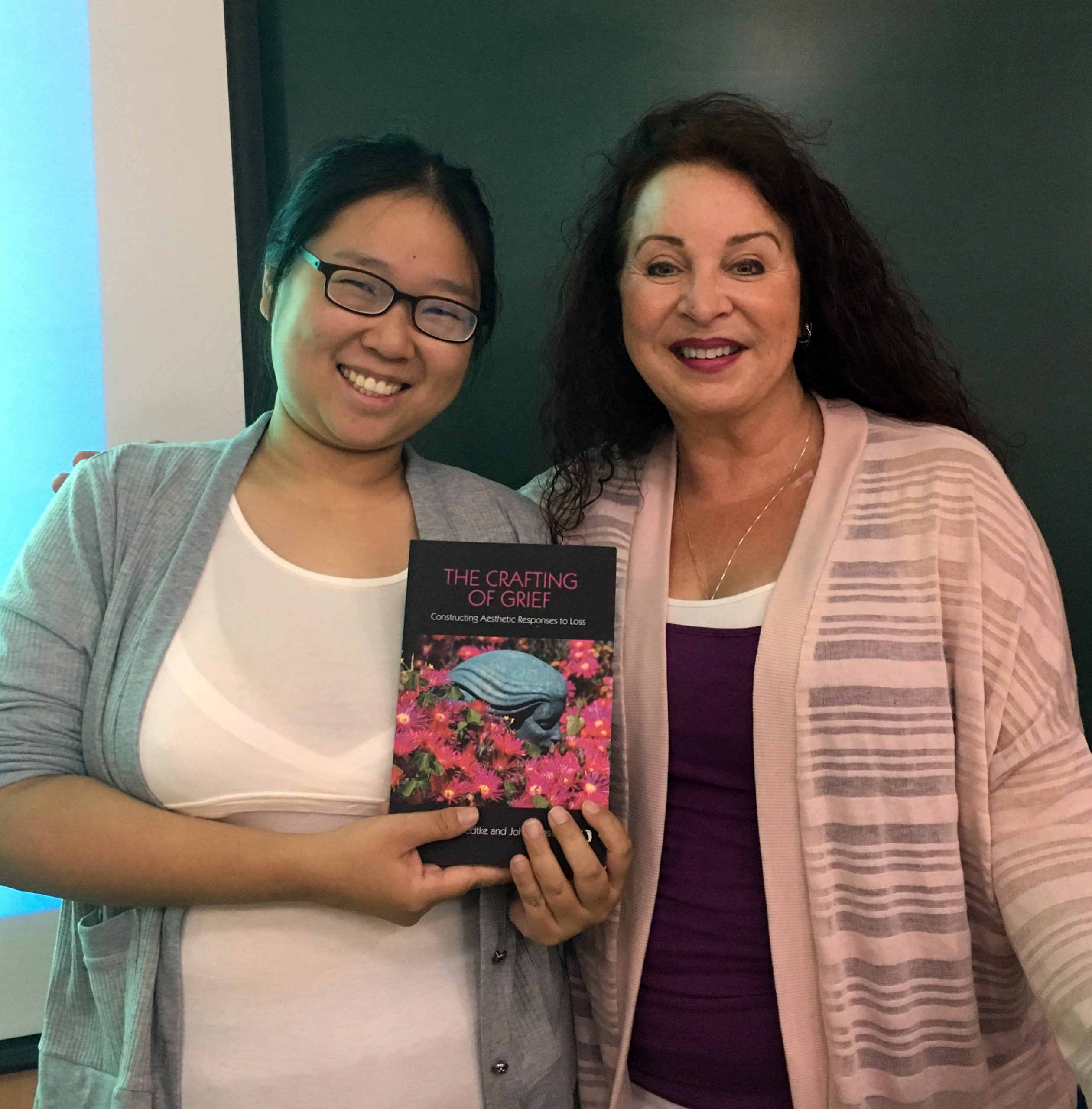Grief is frequently thought of as an ordeal we must simply survive. This book offers a fresh approach to the negotiation of death and grief. It is founded in principles of constructive conversation that focus on “remembering” lives, in contrast to processes of forgetting or dismembering those who have died. Re-membering is about a comforting, life enhancing, and sustaining approach to death that does not dwell on the pain of loss and is much more than wistful reminiscing. It is about the deliberate construction of stories that continue to include the dead in the membership of our lives.
Re-membering Lives Conversations with the Dying and the Bereaved
Reviews
This book is a gift. It reconstructs the realities of death and grief in such a way that we are lifted up. With conceptual sophistication, clarity of voice, and an ear for good stories, the authors teach us about the importance of narrative in keeping those who have passed on alive and well in our daily lives. An inspiring work.
Ken Gergen, Ph.D. Author, An Invitation to Social Constructionj
Compassionate and conceptually sophisticated, Re-membering Lives transcends the constraints of traditional grief theories with their emphasis on 'letting go,' offering instead conversational practices for 'holding on' to those we have loved and lost. I recommend this book highly both to the bereaved and to those professionals who wish to assist them in cultivating continued connection to the sustaining relationships that give life its meaning. Animated by a narrative emphasis on the storied nature of human life, Hedtke and Winslade open new vistas for continuing the life stories of those we love beyond their deaths. This practical and compassionate volume has a place on the shelf of every counselor and therapist who wants to help the dying and bereaved affirm their continuing bonds in the face of life's ultimate transitions.
By clearly articulating the healing power of remembering practices, and anchoring their recommendations in evocative case vignettes, Hedtke and Winslade provide a new perspective on the challenges and possibilities of bereavement that is both revolutionary and readable. This book draws inspiration from the narrative and meaning-making approaches that are transforming the filed of grief therapy, while at the same time sharpening its practical implications. "Compact and compassionate, this book will help both the bereaved and the secular or spiritual counselors they consult affirm sustaining attachments even in the face of death. The conversational practices offered by these authors extend the life legacies of those we have loved and lost, and have a place in the work of every grief therapist.
Robert A. Neimeyer, Ph.D. Editor, Death Studies author, Meaning Reconstruction and the Experience of Loss
This volume in the Death, Value and Meaning Series offers an "out of the box" philosophy for healthcare professionals in the end-of-life care provision. Based upon the concepts of remembering and constructive conversations, this book provides an alternative, sometimes radical, departure from the traditional grief and bereavement theories.Through a series of stories and vignettes, the book engages the reader, while providing interactive opportunities to contribute stories of their own to this ongoing research. The book is innovative and disturbing at this same time—interesting reading.Mental health clinicians, family therapists, caseworkers, social workers, psychologists, psychiatrists, physicians, nurses, bereavement counselors, hospice and palliative care professionals—all will find this an excellent resource for alternative grief therapies.
Becky Stepp, BBA, MEd, BS, M(Seton Medical Center) Doody Enterprises Online Review
...for me this is a good book to be re-reading, to return to, and to continue gaining from, as I apply its wisdom in my practice. The ideas here lead on to further thought and discussion too in many areas, such as the application of narrative methods to non-death griefs, and to relationship endings in all their infinite varieties. I think this book is a valuable addition to the written and spoken material on grief, and it would have appeal and application for many of those of us who either grieve, or support those who grieve. It sits well alongside any professional practice modalities which are concerned with: person-centered work, meaning making, strengths-based work, reframing, empowering, honoring lives and relationships, and much more. Overall its message provides a remarkably positive and hopeful approach to grief work in all its aspects.
Anne Horrill New Zealand Association of Counsellors Newsletter, September, 2004
Hedtke and Winslade emphasize the importance of remembering our dead by speaking of them ften and so allowing them to live on, rather than to remain silently hidden away within the grieving individual. This book proposes linking rather then severing, connecting rather than disconnecting, and that this can and should be done before we die. It shows how we can embrace the dying and the bereaved in the membership club of the living. The book is critical of any grief therapy and bereavement counseling that suggests 'letting go of the dead' and 'getting on with life', where this means forgetting the dead or discouraging continuing bonds with the dead.
Josefine Speyer Natural Death Centre News & Views Autumn/Winter 2004
This clearly written book will be invaluable for any bereavement counselor who would like to promote positive ways in which the dead can live on in a client's life.
Tony Walter University of Reading, Cruse Bereavement Care, Volume 24, Number 1
This work by Hedtke and Winslade is a must for the bookshelf of anyone working with the dying and/or the bereaved. It offers effective ways to assist the patient or client in their coping process. The concept of re-membering is another step in the on-going stucy of coping with death-related loss.
Dennis Kelly Director, Bereavement Resource Center of New York, The Thanatology Newsletter, Volume 9, Number 4
Let me say at once that despite some reservations, I think this is the best book I have read on grief counseling. Its stance-argued with intellectual rigor and humane, personal touches-/offers creative, original and (paradoxically) life-enhancing ways of working with people whose loved ones have died or are facing death. It also offers a great deal to counselors working with the dying. I cannot imagine any therapist reading this text without a sense of potential enrichment to their practice.This is an exceptional and inspiring book, which I wholeheartedly recommend.
Martin Payne Counselor in Primary Care and Private Practice, Norwich, British Journal of Guidance & Counselling, Vol. 32, No. 4, November 2004

